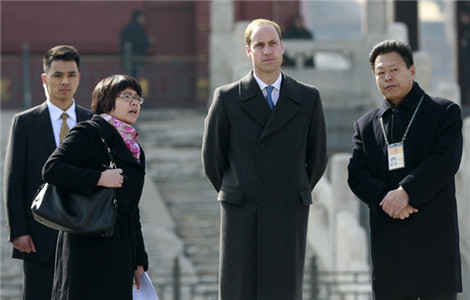US businesses to lower 2015 reinvestments in China
Updated: 2015-03-03 07:27
By LI WENFANG/ZHONG NAN(China Daily)
|
||||||||
 |
|
A woman walks under a decoration made of coloured umbrellas at a shopping center in downtown Kunming, Yunnan province, June 19, 2014.[Photo/Agencies] |
Members of the American Chamber of Commerce in South China have reduced their reinvestment budgets for this year by 9.3 percent.
Based on an annual survey by the chamber, the members cite concerns about regulatory changes, protectionist policies, transparency and unequal treatment.
The survey found that reinvestment budgets for the coming three years dropped by 16.9 percent. This suggests "increased uncertainty in the medium term", although the companies view the Chinese market's growth trends as highly positive, according to the survey, released on Monday.
It covered 275 randomly selected member companies of the chamber. The chamber members account for nearly 40 percent of all Sino-US business, trade and investment.
Twenty-four percent of multinationals that had each budgeted to reinvest $250 million or more last year either deferred or called off their investments, the survey found.
It is the first time in the 10 years that the report has been compiled that companies have recorded less reinvestment than originally budgeted.
Regarding investments of less than $250 million, more companies increased their investments. Nearly 10 percent of them had budgeted to reinvest $10 million to 50 million last year, and 14.4 percent did so. While 5.3 percent of companies had each budgeted to reinvest $50 million to $250 million, 9.4 percent reinvested amounts in that range.
Chamber President Harley Seyedin said, "This suggests that although large planned reinvestments were called off or deferred, companies continued to reinvest heavily in their China operations."
The trend also suggests that executives in China are highly confident of the Chinese market's future, he said.
This year, 79.3 percent of survey participants said their main business focus is providing goods or services to the Chinese market, while only 20.7 percent reported a primary focus on manufacturing for exports. Those investing in other countries to benefit from cheap land and labor are mostly involved in exports to the United States.
Richard Ren, vice-president corporate affairs at drinks producer Vitasoy (China) Investments Co, said despite the survey result his company remains highly confident about the Chinese economy.
The company, which runs three plants on the Chinese mainland, is investing about 500 million yuan ($79.7 million) in the first phase of a plant in Wuhan, Hubei province, which is scheduled to start operating next year.
Wang Zhile, a senior researcher at the Chinese Academy of International Trade and Economic Cooperation, said China is readjusting its industrial structure. Foreign investment that has already been made in heavily polluting sectors or business that has affected the country's sustainable development is no longer welcome.
China saw strong foreign investment inflows in January. The country gained $13.92 billion in foreign direct investment that month, an increase of 29.4 percent from a year earlier.

 All dressed up
All dressed up
 Caveman saves money for family
Caveman saves money for family
 Buddhist monks break bricks in kung fu
Buddhist monks break bricks in kung fu
 China's interest rate adjustments beteen 2008 and 2015
China's interest rate adjustments beteen 2008 and 2015
 Beijing steps up security for two sessions
Beijing steps up security for two sessions
 Han-style Chinese beauties at Cambridge
Han-style Chinese beauties at Cambridge
 Prince William visits Forbidden City
Prince William visits Forbidden City
 Aerial views of plum blossoms as beautiful as oil paintings
Aerial views of plum blossoms as beautiful as oil paintings
Most Viewed
Editor's Picks

|

|

|

|

|

|
Today's Top News
Agents raids suspected California 'maternity hotels'
Cybersecurity law 'makes perfect sense'
US firms to lower China stakes in '15
Homeless man shot dead by US police
Netanyahu assails Iran-nuclear talks; Obama disagrees
China passes US at movie box office
Air pollution tops public concerns for two sessions
Wanda's Wang tops China's rich list
US Weekly

|

|







